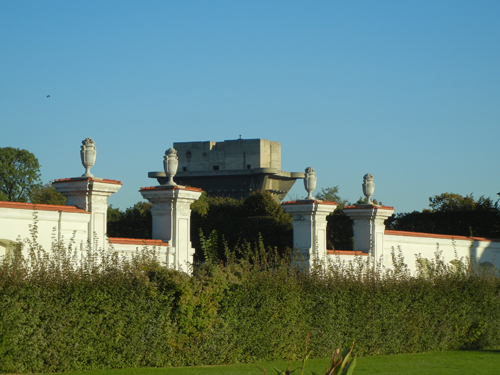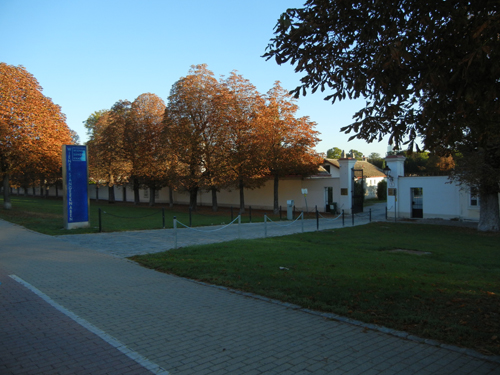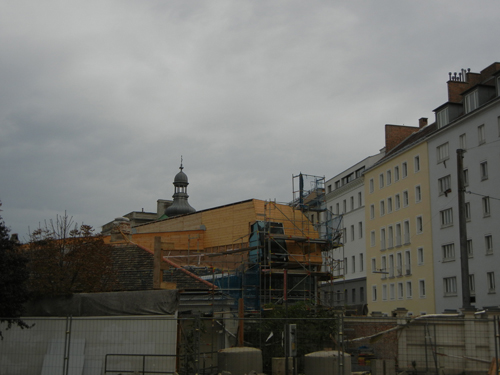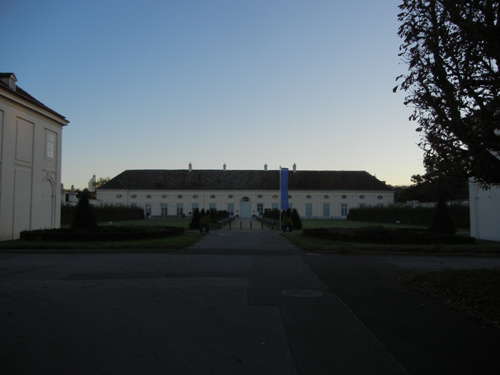Vienna, the storied city, along with the rest of Austria, famed for its music, design, art, and cakes, and notorious for some hidden dark histories many people pretend not to have happened. However this mixture of beauty and ugliness would co-exist uneasily and would always be there to tell people not to forget.
In the neighborhood I stayed just out side the Ring, there was a lovely garden - Augarten, where the elements of angelic and evil co-existed, and mirrored the tortuous history of Austria almost too cunningly.
Augarten is a 52.2 hectare public park in Leopoldstadt, the second district of Vienna, Austria. It contains the oldest Baroque gardens of the city, dating back from 1614.
The most startling features of this otherwise absolutely delightful garden are two terrifying bunkers (Flaktürme) built by the Germans during World War II - powerful, menacing, grim and ugly.





These two bunkers above were so formidable and they were virtually indestructible due to their strong structures and sheer immensity. To destroy them, a large portion of the neighborhood would be decimated along with them. However, I was relieved that they could not so easily to erase them from the face of earth, as surely someone would have preferred, and then put on a most innocent air, and pretend that nothing ugly had ever taken place. But they were to stay, to remind of people that behind and besides angelic facade, there were evil things lurking and people ought to watch out.
The most angelic beings in Augarten were the world-famous Vienna Boys Choir (Wiener Sängerknaben), who lived in a baroque palace - Palais Augarten. During my morning stroll outside Augarten, I saw the entrance to the palace, with a sign indicating the Boys' Choir residence. Seeing no signs forbidding entry, I entered the palace ground and feasted my eyes on the lovely palace and its beautifully cultivated garden. The bunkers were conveniently out of the sight.




A little further away from Augarten, I saw a new concert hall - Musikzentrum Wiener Sängerknaben - being built for the Vienna Boys' Choir.


In order to represent Vienna and Austria truly, there was a institution faintly smelt of kitsch - Augarten Porzellanmanufaktur (Augarten Porcelain Manufacturer) and Museum, where porcelain Lipizzaner Horses were produced. Precious and a tad kitschy.

Augarten, a perfect representative of the imperial city of Wien (Vienna).
Label: Austria, Austria and Italy Trip 2012





Things I never knew
ReplyDelete